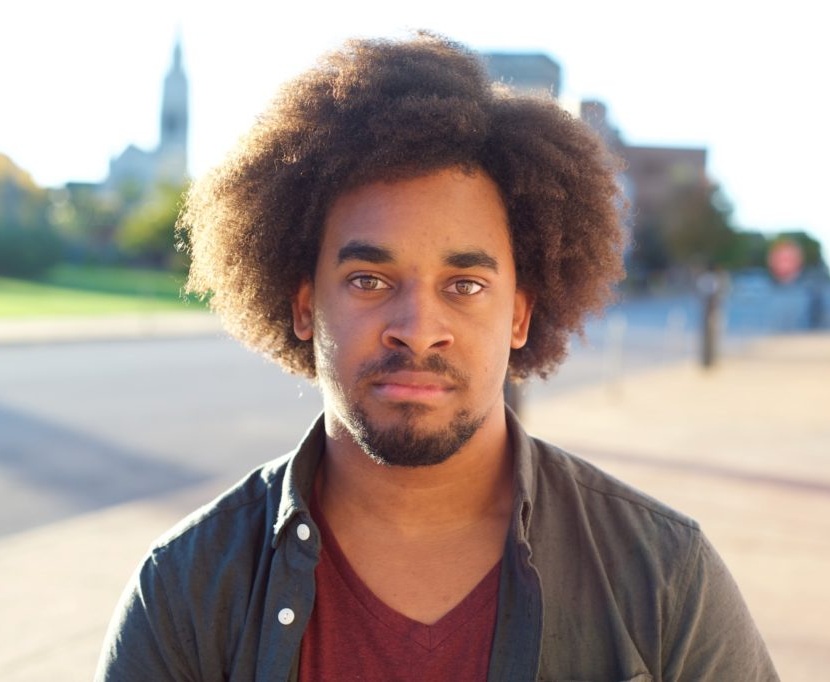David Dwight IV, Lead Strategy Catalyst at Forward Through Ferguson
Karishma Furtado, Research & Data Catalyst at Forward Through Ferguson
This column was originally published on Medium.
David Dwight
The proposed demolition of the Wellston Housing Authority, a public housing development that serves almost entirely Black St. Louisans, paired with an insufficient plan for maintaining the Wellston community repeats a troubling pattern of disinvestment in historic Black neighborhoods. We call on HUD to Radically Listen to the communities and individuals that will be devastated by those actions, apply a Racial Equity Lens to its plans, and lean into its position as a key Policy and Systems actor with the potential to help heal and restore a community as opposed to throwing it away.
Karishma Furtado
Across the last century, St. Louis has regrettably seen the destruction and redevelopment of many historic Black neighborhoods including Mill Creek Valley, Evans-Howard Place, Pershing-Waterman, Clayton, and Kinloch. Often, the rationales given to the communities pointed to the substandard condition of the existing housing, the potential for urban renewal, and the need for new infrastructure. These rationales ignore the history of neglect and disinvestment by governmental, financial, and private institutions that have created the substandard conditions. The proposed actions by HUD place Wellston dangerously on the edge of joining this list of decimated Black neighborhoods.
A principle of the Ferguson Commission that we feel is critical to all of our work is Radical Listening. This consists of taking the time to hear what the communities we intend to serve have to say, trusting them to be the experts on their experiences, and then formulating plans and taking action accordingly. It is clear: the community of Wellston was not properly consulted and does not want this course of action. They do not want to fall prey to the toxic pattern of discarding Black communities in the name of urban renewal intended to benefit others. They want to enjoy the baseline of investment and optimism that so many other neighborhoods in our region experience and expect.
The Ferguson Commission—after their comprehensive, regional study, which included over 3,000 St. Louis community members—next encourages us to judiciously apply a Racial Equity Lens. This means asking ourselves for any given action, program, or policy being considered:
Whom does this benefit?
Will this differentially impact racial and ethnic groups?
And, what is missing that will intentionally decrease or eliminate racial disparities?
The answers to these questions undoubtedly show that the destruction of the Wellston Housing Authority would be a shock felt almost entirely by a low-income Black community. 99% of Wellston is Black compared with 24% of St. Louis County. The disparate impact is clear and egregious.
The third principle of the Commission calls on us to recognize the historical treatment of Black neighborhoods in our solutions by prioritizing a Policy and Systems Approach. This technique enables us to understand how disparate outcomes are the product of the way our institutions, practices, policies, and laws were built and how they continue to impact community health today. It calls us to reach beyond reaction to symptoms—a neglected public housing complex—and to instead implement solutions that address the root causes of inequities.
This means situating the lack of opportunities to thrive for so many of our Black neighbors and communities—reflected in many indicators of access and wellbeing—within the broader context of local, state, and national systems and policies that not only passively fail to serve them but actively damage them. It also means acknowledging that weakening neighborhoods and destroying low-income housing when affordable housing is already exceedingly scarce goes on to have profound impacts across the lives of those whose homes and communities are lost. Dr. Jason Purnell of Health Equity Works at Washington University in St. Louis reminds us of this saying, a child who can’t hear, can’t see, hasn’t slept, can’t breathe, has been traumatized, hasn’t eaten, and doesn’t know where they’re going to sleep, doesn’t have the opportunity to learn. The planned actions of HUD will have profound and adverse ripple effects across the lives of those displaced.
Similarly, when tasked with examining the underlying causes of the civil unrest after the death of Michael Brown, the Ferguson Commission identified a long-standing history of disinvestment in Black communities as one of many interrelated factors that feed our persistent racial disparities across most life outcomes. It called for investment in more and better affordable housing and policy-based commitments to help predominantly Black neighborhoods thrive.
Forward Through Ferguson lends its voice to those calling for the proposed demolition of the Wellston Housing Authority to halt until HUD and local partners have taken the vital first steps to apply a Racial Equity Lens, Radically Listen to affected community members, and commit to a Systems and Policy approach. We must ensure that Wellston does not join the list of Black St. Louis neighborhoods lost to history due to systemic neglect and redevelopment.
*Note: This letter was sent to HUD and the Housing Authority of St. Louis County. It was submitted during the public comment period; a decision was later made Thursday, May 23rd to move forward with the “demolition and disposition” plan.
***
David Dwight IV serves as Lead Strategy Catalyst and Karishma Furtado serves as Research & Data Catalyst with Forward Through Ferguson.
***
Articles in “From the Field” represent the opinions of the author only and do not represent the views of the Community Builders Network of Metro St. Louis or the University of Missouri-St. Louis.
We invite readers to contribute to the civic conversation about community development in St. Louis by writing an op-ed for the Community Builders Exchange. Op-eds should be short (400-700 words) and provocative. If you have an idea for an op-ed, contact Todd Swanstrom at swanstromt@umsl.edu.








